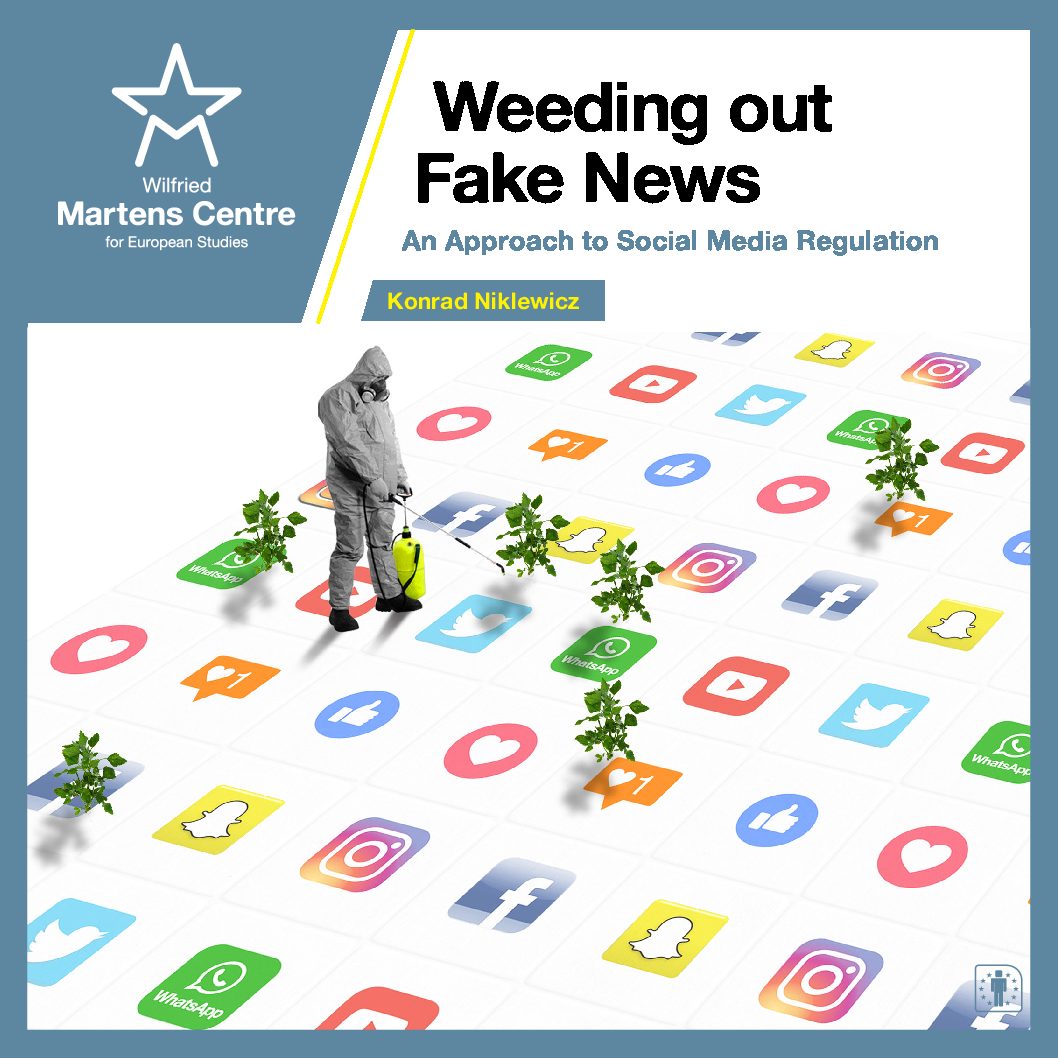Related publications
-
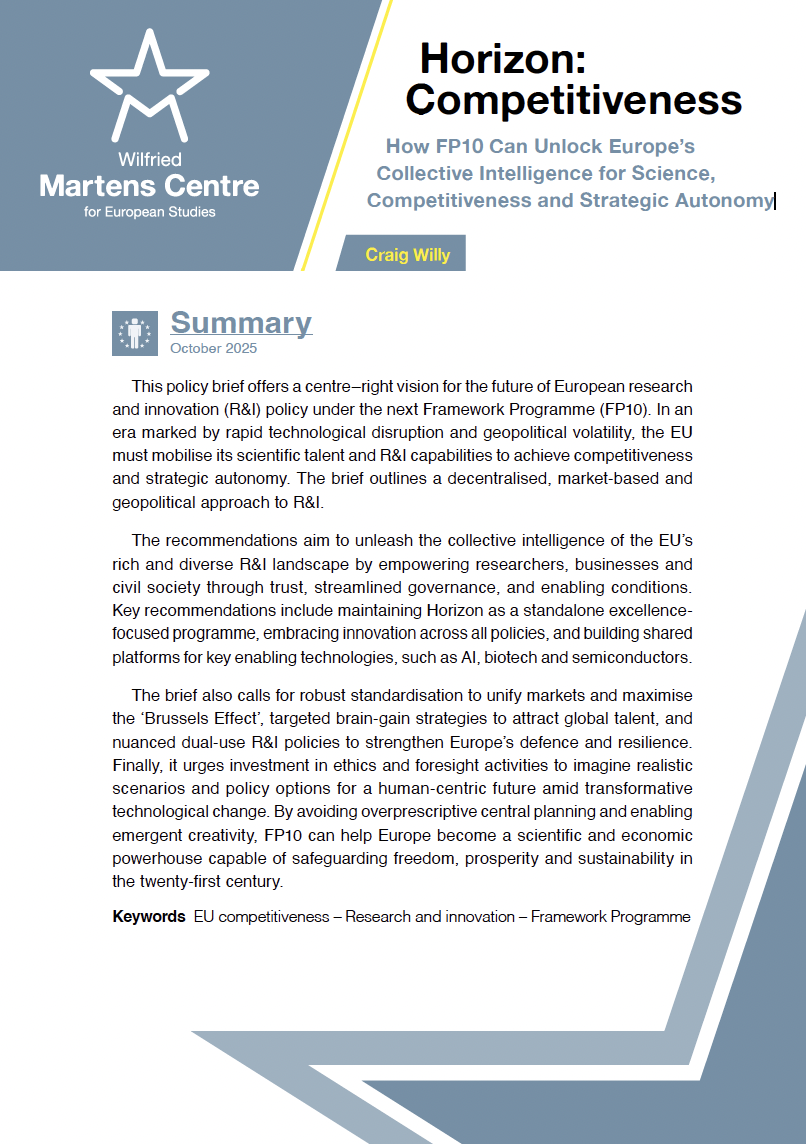
Policy Briefs
Horizon: Competitiveness – How FP10 Can Unlock Europe’s Collective Intelligence for Science, Competitiveness and Strategic Autonomy
-
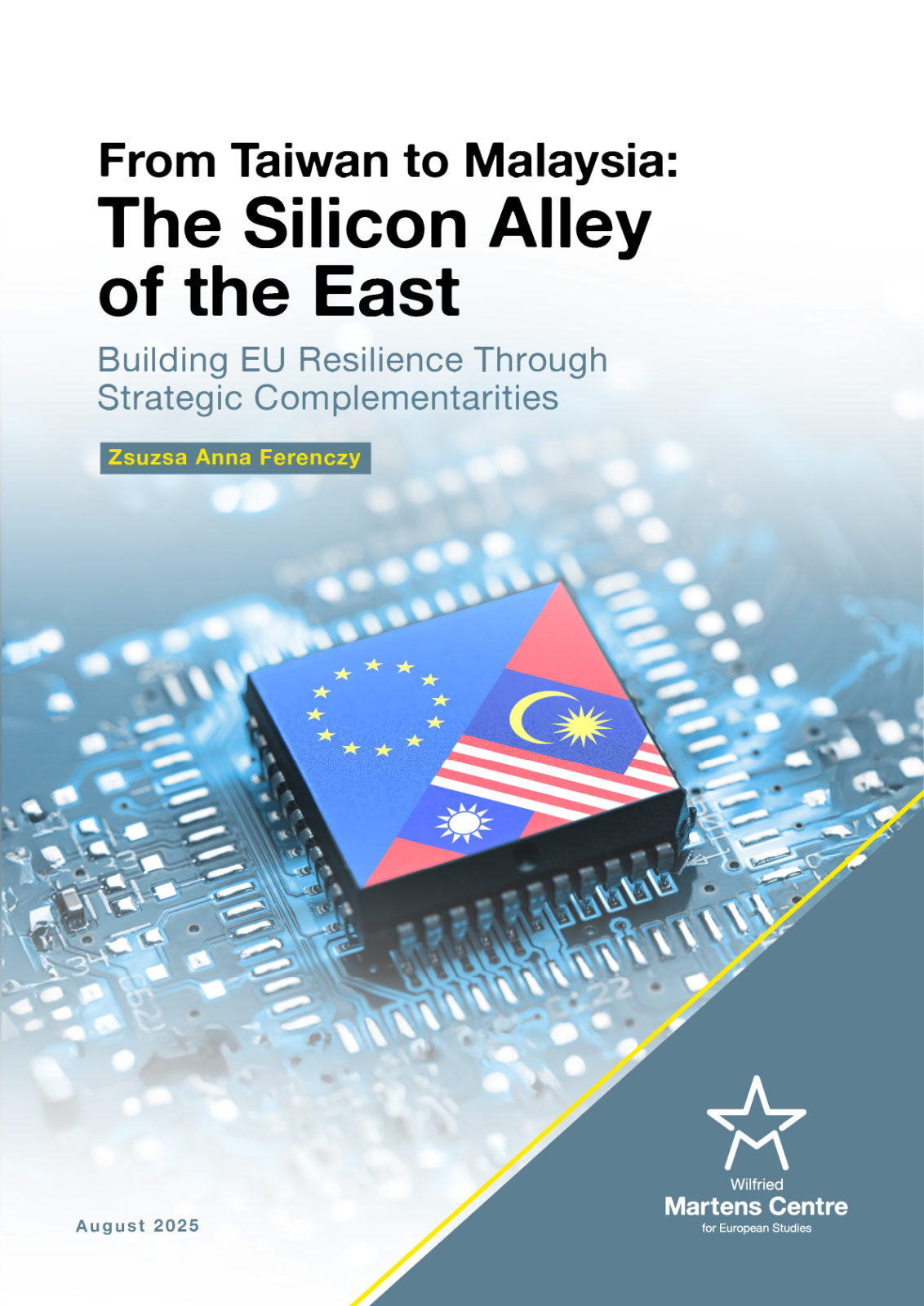
Other
From Taiwan to Malaysia: The Silicon Alley of the East
-
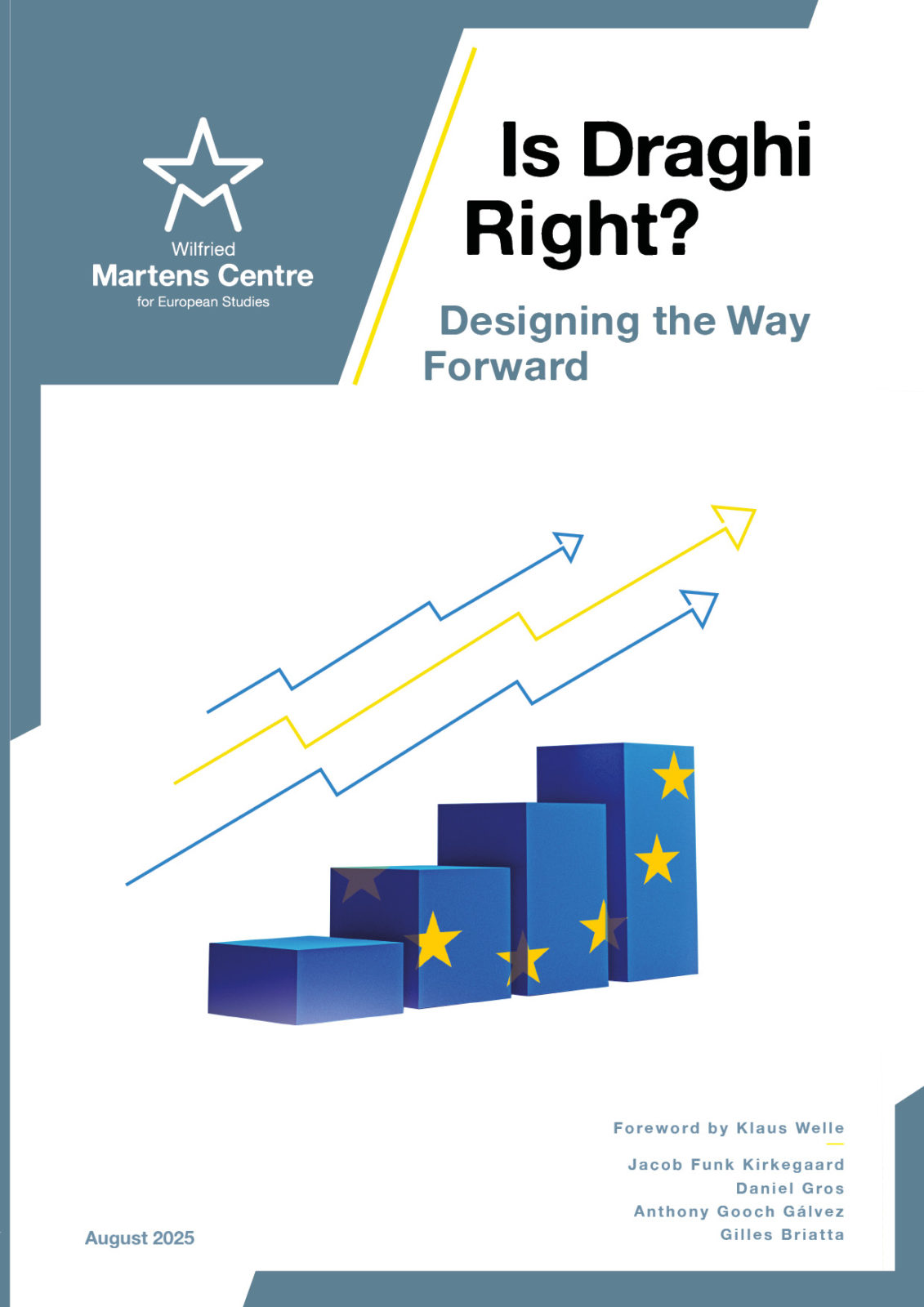
Other
Is Draghi Right? Designing the Way Forward
-

Policy Briefs
China’s Electric Vehicle Challenge to Europe: Red Flags and Red Lines
-
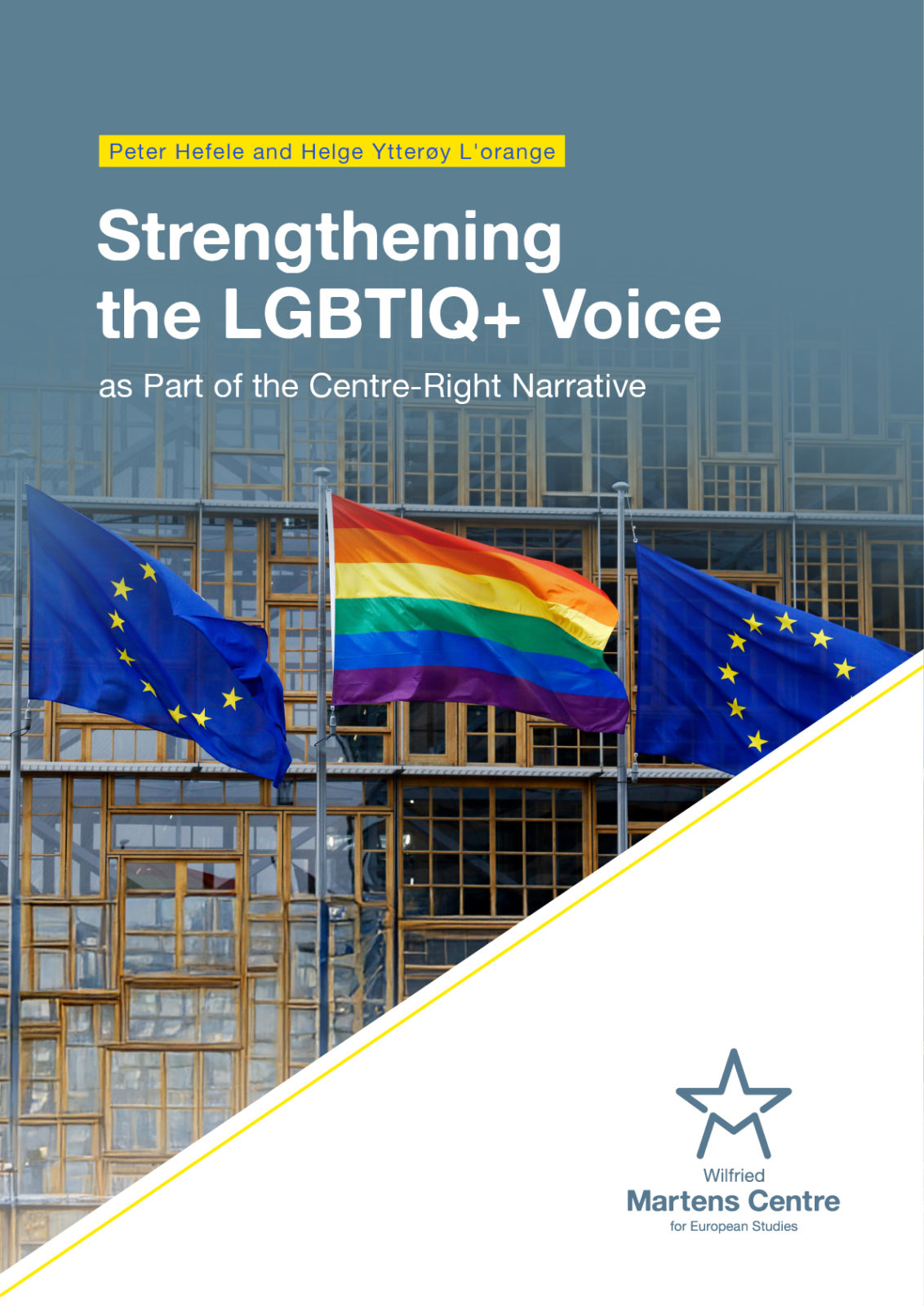
Other
Strengthening the LGBTIQ+ Voice As Part of the Centre-Right Narrative
-
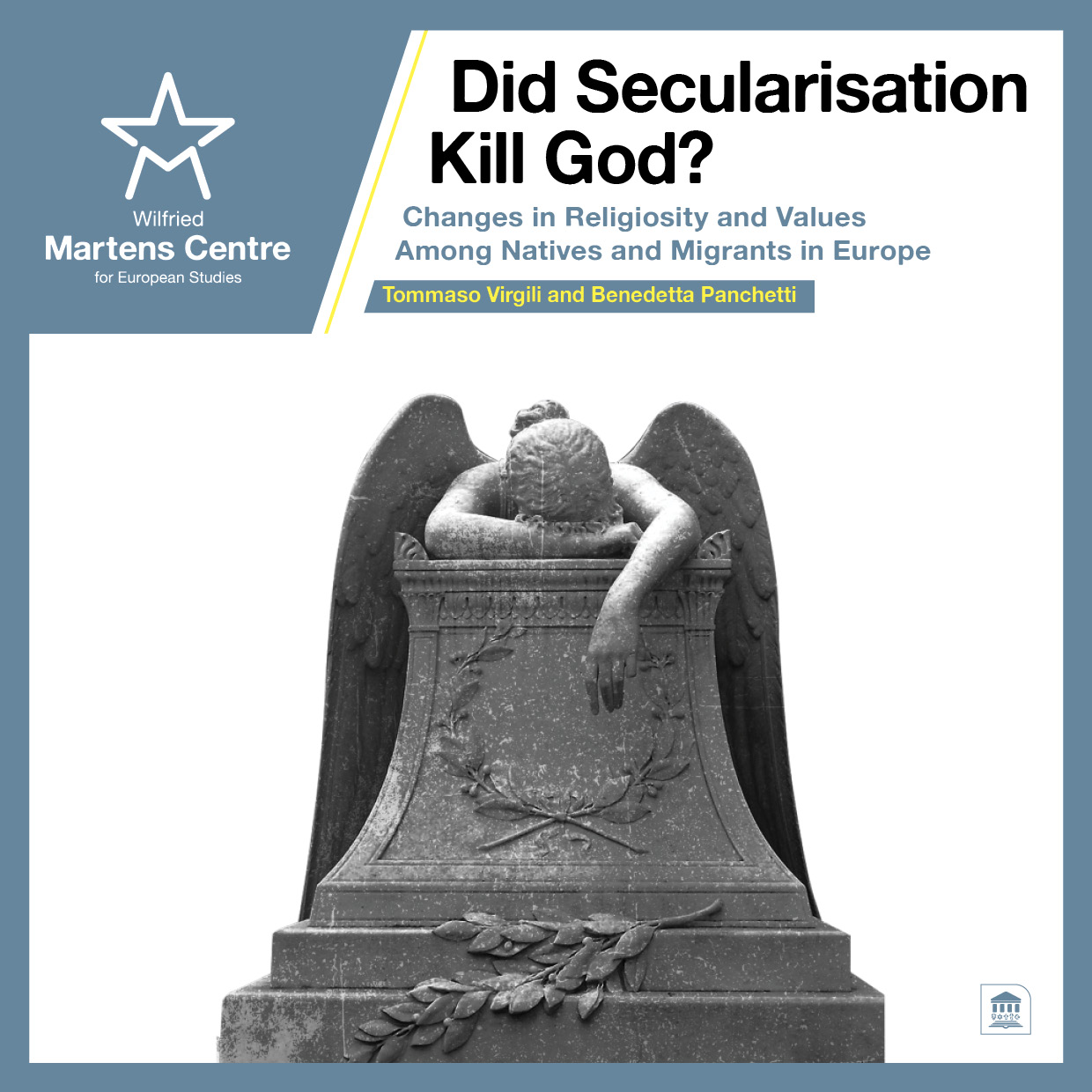
Research Papers
Did Secularisation Kill God? Changes in Religiosity and Values Among Natives and Migrants in Europe
-

Collaborative
Transatlantic Trade and Technology: Partners or Rivals?
-
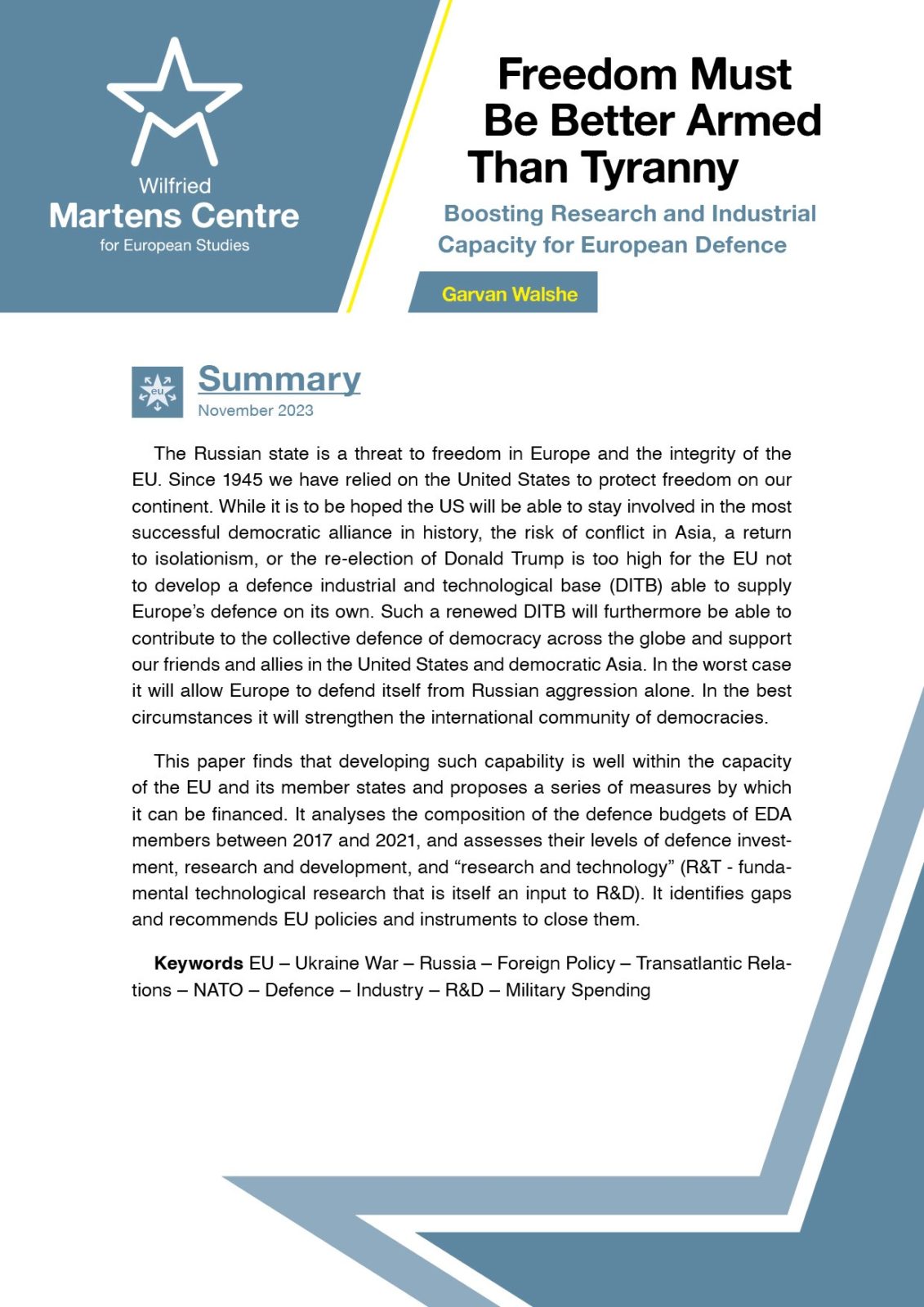
Policy Briefs
Freedom Must Be Better Armed Than Tyranny: Boosting Research and Industrial Capacity for European Defence


